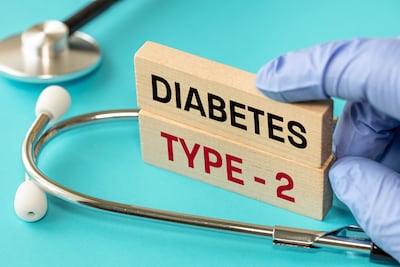Digital Technologies
In this week’s Digital Health Roundup, Medtech Insight’s Ryan Nelson highlights Click Therapeutics’ FDA-cleared digital therapeutics (DTx) for depression and Sinaptica Therapeutics’ personalized neuromodulation for Alzheimer’s patients. Marion Webb discusses her interview with MindMaze’s John Krakauer on their gaming-focused DTx to help people recover from serious brain injuries. Elizabeth Orr introduces new voting members of the new Digital Health Advisory Committee and Natasha Barrow discusses Hello Heart’s new symptom-tracking feature in their heart-focused app.
This week, Establishment Labs Holdings announced the FDA gave it premarket approval for Motiva breast implant, Cologuard lands FDA approval for Cologuard Plus and GE HealthCare gets FDA nod for a new imaging agent. The FDA announces another expansion for TAP into ophthalmology and radiology. The AAMI and CTA will join forces to develop standards for AI and ML-enabled health care products.
A Deep Dive into Evidence-Based Guidelines, Clinical Considerations, and Evolving Practices for Post-SBRT Imaging in Spinal Tumor Patients
Tim Schmid, executive VP and worldwide chairman of J&J MedTech, expects Shockwave, acquired in April, and Abiomed, purchased in late 2022, to be “long-term gems” for the company. Cardiovascular is among higher-growth segments where J&J has concentrated investments in recent years, along with robotic surgical systems.
The US FDA has published a trio of draft guidance documents for its Assessment Scheme for Conformity Program, which began as a pilot in September 2020 to capitalize on the role of standards in the regulation of medical devices.
This week, Neuralink announced it received US FDA breakthrough device designation for a device to restore sight; medtechs Discure and DeepLook secured new funding; FDA pump recalls from B. Braun Medical and Fresenius Kabi; Axonics prevails in patent infringement lawsuit with Medtronic; Merit Medical buys Cook Medical for $210m.
The EU IHI’s eighth call for action also encourages innovative medtech approaches to tackling cardiovascular disease and osteoarthritis and patient-centered endpoints that can benefit from advancements in digital health.
MamaLift Plus, 510(k)-cleared by the FDA in April as the first prescription digital therapeutic for treating postpartum depression, will soon be available for download on the App Store or Google Play. Announced 28 August, Curio has raised $10m in Series A funding to bolster commercial activities.
Inari Medical is updating use instructions for a clot-removing catheter due to the potential for serious adverse effects, including death.
The Acton, MA-based tubeless insulin pump specialist expands its indication for the Omnipod 5 AID system beyond type 1 diabetes as FDA authorization for type 2 comes sooner than Wall Street expected. Analysts expect clearances of rival systems from Tandem Diabetes Care and Medtronic in 2025, but believe Insulet is well-positioned to compete.
Two years after the EU adopted the original common specifications for certain products under the IVD Regulation, the commission has added new products and updated its requirements.
This week, a medical group sued the FDA to block a lab-developed test rule; the FDA published guidance on device classifications; Defibtec issued a recall of its chest compression device and ICU Medical updated instructions for its infusion pump batteries; Maui Imaging raised a $4m DOD grant to put imaging tech into military-based trauma units.
Getinge says it plans to pay about $477m for organ transport and services company Paragonix Technologies in an effort to “redefine the market standard in transplantation.”
While not statistically significant, the results of a new study – which linked use of Alife Health’s Stim Assist AI tool to increased egg yield and reduced FSH usage in 291 in vitro fertilization patients versus a control arm – are encouraging, investigators say.
This week, surgical robot maker Globus Medical got a warning letter from the US Food and Drug Administration; the FDA cleared a hemostatic gel to stop blood loss; Medicare issued a payment code for Medtronic’s renal denervation device; and more.
Caresyntax said it will use the $180m it recently raised in a series C extension and debt financing round to build out its vendor-neutral surgery platform aimed to help surgeons with real-time and long-term decision support to improve patient outcomes and efficiencies.
A bipartisan bill now in the US Senate seeks to change the classification of implantable hearing aid devices to allow Medicare to reimburse for the devices, potentially expanding access for many Americans who require them.
Hello Heart has introduced a symptom tracking feature in its app, allowing users to log feelings of dizziness or shortness of breath in conjunction with blood pressure readings. The enhancement will help all users to monitor cardiovascular risks, but women in particular could benefit, the company suggests.
The Seattle-WA-based company’s latest capital raise follows study results published in July in which Know Labs’ proprietary non-invasive RF dielectric sensor and machine learning algorithms correctly classified participants’ glycemic status as hyperglycemic, normoglycemic, or hypoglycemic with 93.37% accuracy compared with venous blood glucose values. Know Labs' goal is to commercialize a diabetes screening device that could help to funnel undiagnosed patients into the health care system.
Global investment firm Carlyle has agreed to pay $3.8b for Baxter International’s Kidney Care unit. The newly spun-off business will be known as Vantive.














